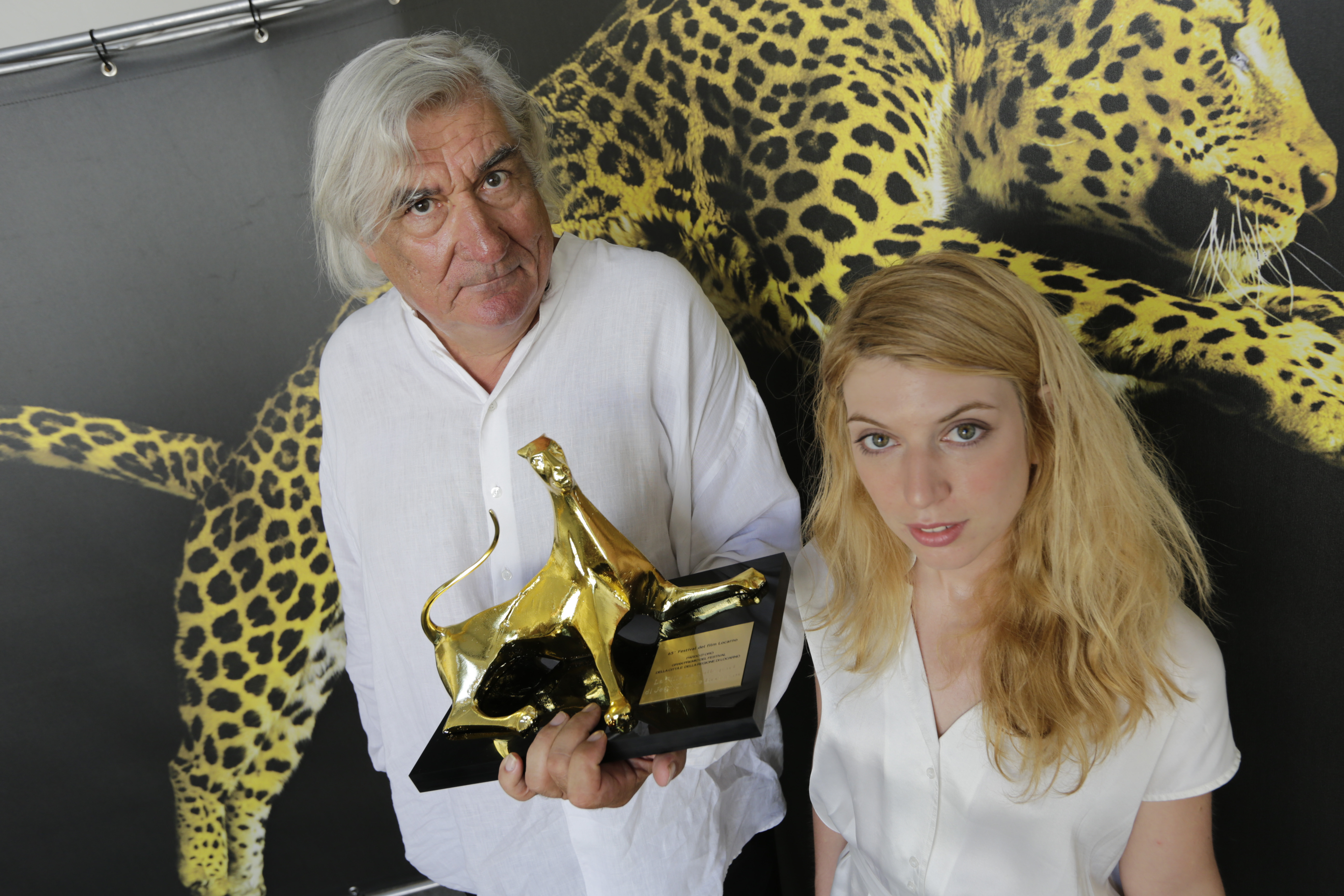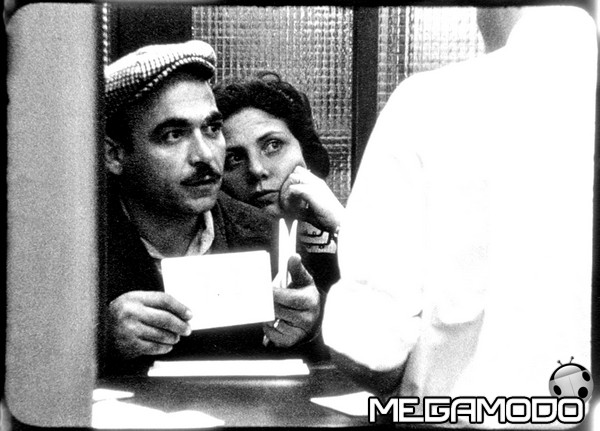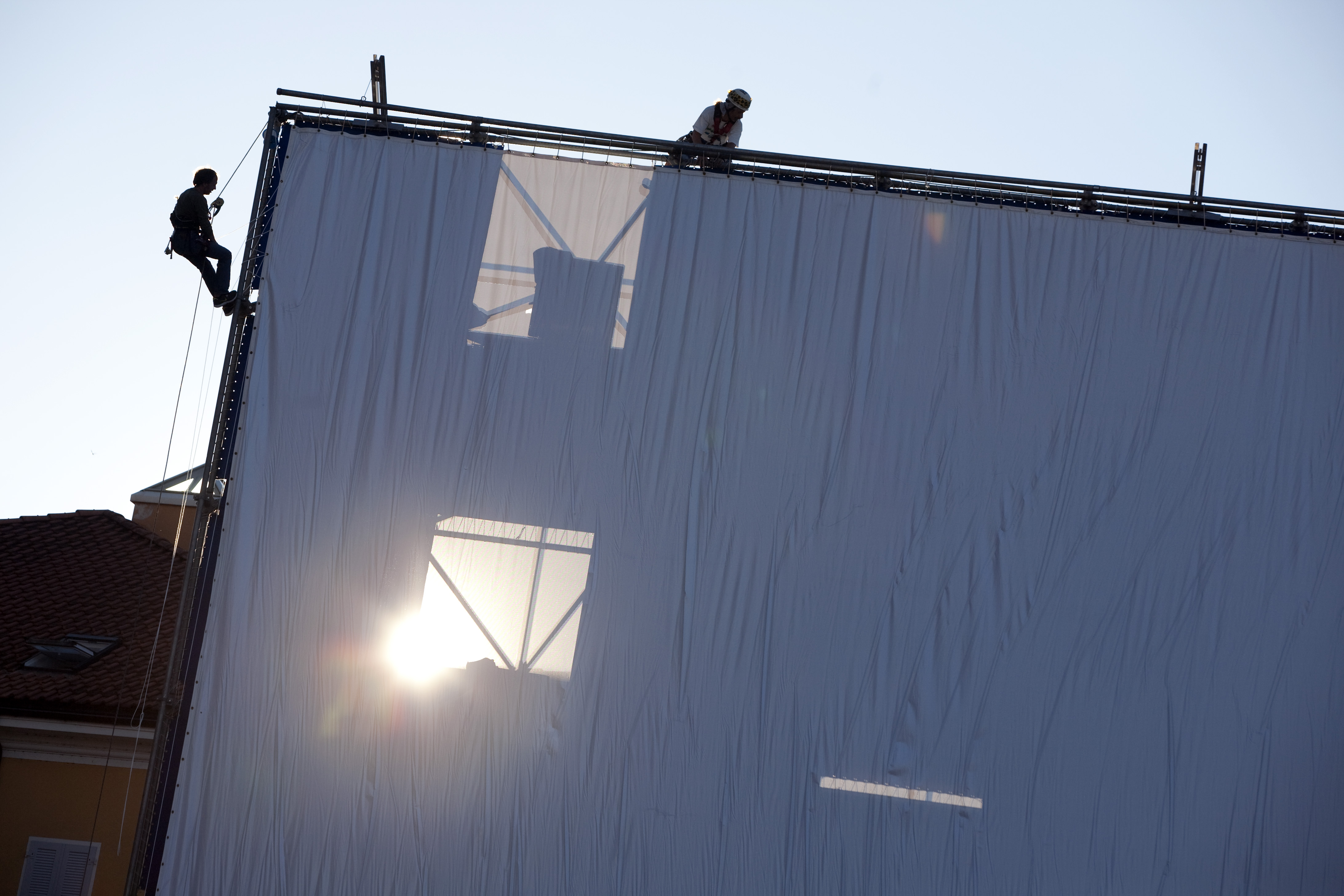Choice of Golden Leopard raises eyebrows

French director Jean-Claude Brisseau’s low-budget drama La Fille de Nulle Part (The Girl from Nowhere) has won the top prize at the 65th Locarno International Film Festival, which this year divided critics.
The third festival under Olivier Père drew mixed reviews, with not everyone won over by the programme on the Piazza Grande.
Critics were puzzled not least by the handing of the Golden Leopard to 68-year-old Brisseau.
“Although it’s interesting that the film was shot with amateur actors on a shoestring, I’m astonished that Locarno – which claims to be a festival of discoveries – has honoured someone from the 1968 generation who’s been making films for years,” said Antoine Duplan, film critic of the Geneva-based Le Temps.
Antonio Mariotti from the Corriere del Ticino was also perplexed. “It’s definitely not a film that stayed in the hearts of the audience. I can’t see a clear cinematic line in the jury’s verdict, which is a bit disappointing.”
The Girl From Nowhere tells the story of Michel – played by Brisseau – a widowed former maths teacher who spends his days in his Paris flat working on a book about folklore in everyday life. One day he finds Dora (Virginie Legeay), injured and homeless, outside his door. He takes her in until she recuperates, but then mysterious events start happening in the flat…
The film was apparently made on a budget of just €62,000 (SFr75,000) of Brisseau’s own money and was shot with one camera in his own apartment. The film is already profitable after winning the SFr90,000 ($92,100) that comes with the main prize.
“New spirit”
Despite doubts about the Golden Leopard winner, Mariotti said it was clear that Père “lives for cinema”.
“On the one hand he attaches great value to the history of cinema – as this year’s wonderful retrospective showed – and on the other he displays a great openness, offering space to all possible genres,” he said.
Florian Keller, who covered the festival for Zurich’s Tages-Anzeiger, said Père had brought a “new spirit” to Locarno.
“When he talks about cinema and how to convey it to the audience, I find him intellectually very convincing. But with Olivier Père it’s not as if a new era has dawned – there hasn’t been a paradigm shift.”
“Positively surprised”
Nineteen films were shown in competition this year – of which Mariotti found “at least half of them interesting”.
“The European auteurs in particular stood out for me, but the independent US cinema also reached a good level. On the other hand no particularly moving works came from Asia or the rest of the world,” he said.
Keller was “positively surprised” and believed the competition’s profile had been raised.
Alessandra Levantesi from the Italian newspaper La Stampa said Père had shown a “certain sophistication and a lot of courage” balancing documentaries and fiction.
Antoine Duplan was a bit more reserved. “The quality of the films varied a lot. I expected more from the American directors – their films had little sparkle and were cynical, with young, immature casts. To be honest, I occasionally had the feeling I was wasting my time sitting there.”
Ups and downs
Nevertheless, three films worked their way into Duplan and Mariotti’s hearts.
“I really liked Leviathan, by Verena Paravel and Lucien Castaing-Taylor,” Duplan said. “It’s an innovative documentary shot with dozens of miniature cameras which tell the difficulties of daily life of fishermen. The pictures and sound are incredible.”
The End of Time, by Swiss-Canadian director Peter Mettler, also went down well, with Duplan calling it a “metaphysical poem to time, a mantra, a formally excellent and intellectually very rich film”.
Then there was Der Glanz des Tages (The shine of day) from Austria, directed by Tizza Covi and Rainer Frimmel. An aging circus performer and a theatre actor meet for the first time and turn out to be uncle and nephew. Walter Saabel was awarded Best Actor for his portrayal of the older man.
But for Mariotti there were two major disappointments. “The Swiss film Image Problem [see related story] is very tendentious, immature and ethically borderline,” he said.
“Also I wasn’t convinced by the Italian film Padroni di Casa (Masters of the house) by Edoardo Gabbriellini. Although Olivier Père managed to attract to the Piazza Grande a nice guy and personality like Gianni Morandi [an aging Italian pop star who features in the film], from a technical and story-telling point of view there was room for improvement.”
Swiss presence
Père might have again lured big names to the Piazza Grande, “but that certainly doesn’t mean [Locarno] is trying to imitate other festivals”, according to Mariotti.
He added, however, that this year far too many prizes were dished out and the guests “were on the wrinkly side”, even if they played a significant role in film history. Assessments shared by Florian Keller.
Other critics weren’t sure about some of the juxtapositions of the evening films in the Piazza Grande.
Ugo Brusaporco from La Regione Ticino pointed to a film about assisted suicide being screened the same evening as a comedy.
Duplan added: “The Piazza can offer the public better fare than vulgar and violent films of so-so quality.”
Nevertheless, Duplan says overall the Swiss presence on the Piazza Grande was pretty good.
“Markus Imhoof’s documentary More than Honey was simply fantastic. Nachtlärm (Night noise) by Christoph Schaub wasn’t bad and Michael Steiner’s Das Missen Massaker (Beauty queen massacre) was a bit of light fun,” he said.
“With the exception of Image Problem, the Swiss films in Locarno reflected a certain vitality and quality of Swiss cinema.”
Golden Leopard
La fille de nulle part (The Girl from Nowhere), Jean-Claude Brisseau, France
Special Jury Prize
Somebody Up There Likes Me, Bob Byington, US
Best Director
Ying Liang for “Wo Hai You Hua Yao Shuo” (When Night Falls), South Korea/China
Best Female Actor
An Nai in “Wo Hai You Hua Yao Shuo”
Best Male Actor
Walter Saabel in “Der Glanz des Tages” (The Shine of Day), Tizza Covi and Rainer Frimmel, Austria
(Translated by Thomas Stephens)

In compliance with the JTI standards
More: SWI swissinfo.ch certified by the Journalism Trust Initiative













You can find an overview of ongoing debates with our journalists here . Please join us!
If you want to start a conversation about a topic raised in this article or want to report factual errors, email us at english@swissinfo.ch.